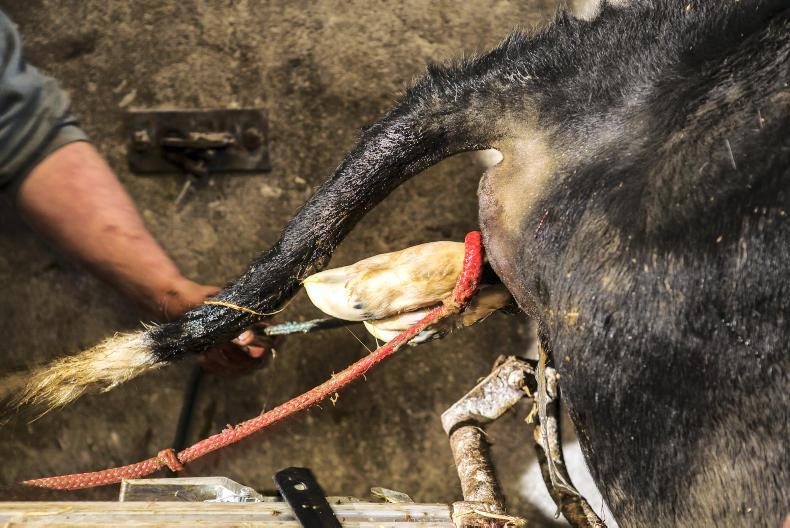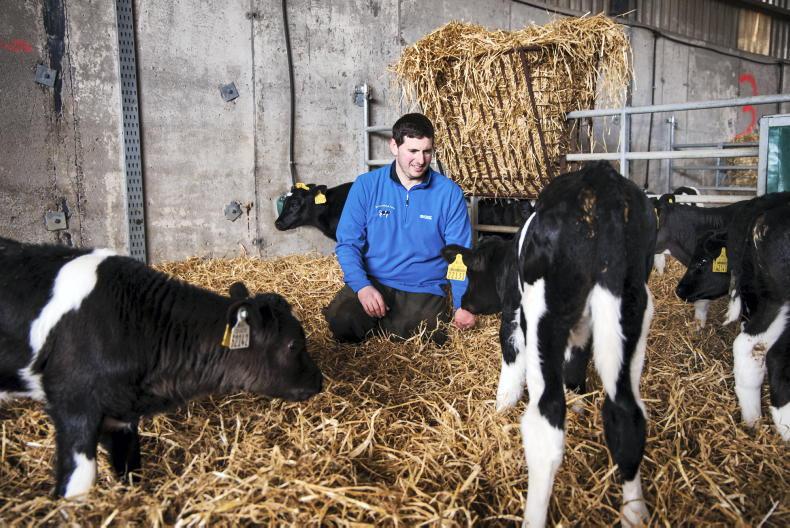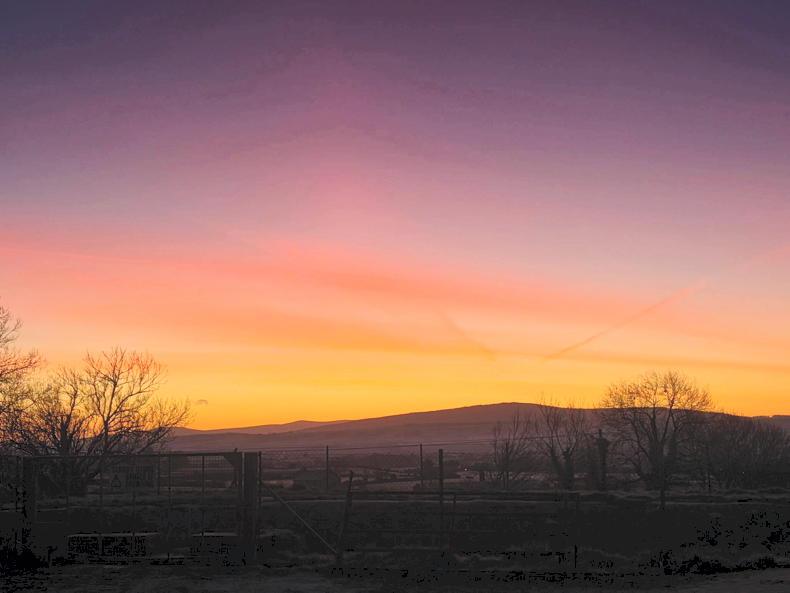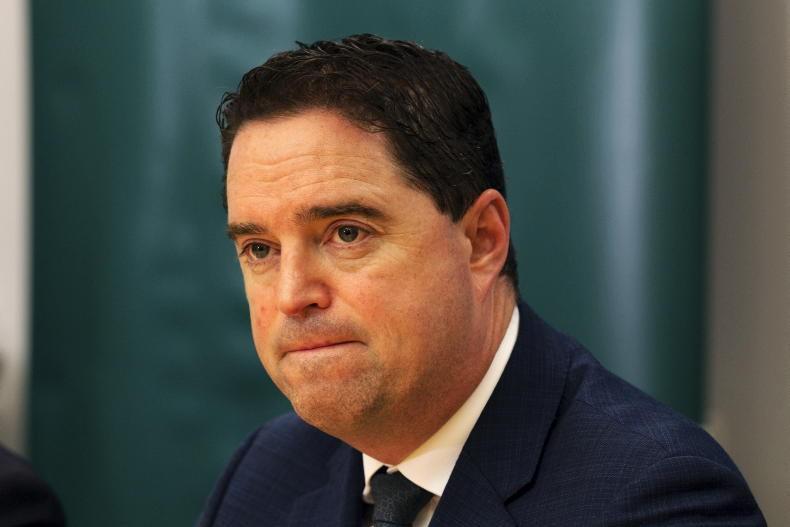There is growing concern in the veterinary profession and among farmers about the shortage of vets who choose to work in farming practice.
The lack of newly qualified vets choosing to work in large or mixed animal practices is not a new problem, but it is becoming ever more difficult to recruit farm vets, particularly in more remote areas of rural Ireland.
“I have told farmers at meetings in Donegal to start using easy-calving bulls. There could be no one to calve cows in 10 years’ time in some places,” Donegal vet Gerald Roarty said.
Currently the only veterinary medicine course in Ireland is offered at UCD and some suggest a solution to the recruitment problem could be to create a route into the course for prospective students with an interest in large animals.
It is a view shared by both Roarty and former IFA Ulster/North Leinster chair Bert Stewart, who was appointed to the veterinary profession’s regulatory body, the Veterinary Council of Ireland, in February.
Competitive
The course in UCD is fiercely competitive, with a CAO points range of 555 needed last year for around 85 places.
Stewart and Roarty both maintain that many students obtaining the required CAO points and entering the course are not interested in becoming farm vets.
Roarty suggests the CAO points requirement for veterinary medicine should be reduced and an interview process introduced so that a set number of places are allocated to students with farming interests.
Another proposal by Roarty is to increase the number of places in the graduate entry veterinary medicine course at UCD and only take in students with qualifications in agriculture.
At present only five students each year enter this course, which offers graduates with science degrees a pathway to become a vet over four years, instead of the standard five-year programme.
However, head of the UCD’s school of veterinary medicine Professor Michael Doherty said that there is no evidence that the use of interviews has any influence on the supply of vets entering farm animal practice.
“The UK and US vet schools have used interviews for many years and yet the recruitment and retention of vets in farm animal practice remains an issue,” he said.
Since 2017, applicants to the undergraduate veterinary course at UCD are also required to have 60 hours of practical animal handling experience.
“The majority of successful applicants in 2017 chose to undertake farm animal placements, although it is of course too early to tell what impact this requirement will have,” Doherty said.
Retention
He said the course at UCD must provide students with skills and knowledge required for any branch of the veterinary profession and he points to a recent study into the issue of farm vet retention which suggests that employment factors have a stronger bearing than educational or personal factors.
Newly qualified vets have more career options than ever, with the choice to work in small animal practices and non-clinical work, such as research and development, laboratory testing and private industry.
An increasing number of large and mixed animal practice owners are now focusing on ways to attract graduates into farm animal work, including a group of 25 practices that have worked together to develop a graduate programme for newly qualified vets.
“Young vets have many options and are discerning. We need to be competitive with what is available from alternative employers. Part of that is helping the transition from being a student to a practitioner with practical training and the support of a mentor,” Geoff Dooley from the XLVets network said.
A sticking point with potential farm animal vets can be the need for practices to provide a 24-hour service. Smaller practices can be at a disadvantage in that the out-of-hours work is spread across fewer vets.
Nick Garvey is a vet based in southwest Donegal and north Sligo and is involved in the XLVets graduate programme. He said that newly qualified vets will look closely at the out of hours rota and the graduate support available in practices.
“College does its best for academic understanding, but our programme is a more boots on the ground perspective to give practical knowledge from people who are dealing with it. Young vets like that structure and support,” he said.
Vet school proposed for Northern Ireland
Proposals to open a veterinary school at Ulster University’s Coleraine campus have re-emerged in recent weeks. If the plans come to fruition, the facility would be the first ever vet school in Northern Ireland and the 10th in the UK. Preparatory work for developing a vet school at Ulster University first began in 2013 but a business case for the proposal was never completed. Professor John Callan from Ulster University told the Vet Record that the university is ready to submit plans to a future NI Executive. It will need an extra £4m per year to establish places for 50 vet students.
Read more
Number of Irish vets qualifying abroad quadruples
Foreign vets help fill shortages in practices
New farm vets hard to recruit
Vets prod old enemy into action
There is growing concern in the veterinary profession and among farmers about the shortage of vets who choose to work in farming practice.
The lack of newly qualified vets choosing to work in large or mixed animal practices is not a new problem, but it is becoming ever more difficult to recruit farm vets, particularly in more remote areas of rural Ireland.
“I have told farmers at meetings in Donegal to start using easy-calving bulls. There could be no one to calve cows in 10 years’ time in some places,” Donegal vet Gerald Roarty said.
Currently the only veterinary medicine course in Ireland is offered at UCD and some suggest a solution to the recruitment problem could be to create a route into the course for prospective students with an interest in large animals.
It is a view shared by both Roarty and former IFA Ulster/North Leinster chair Bert Stewart, who was appointed to the veterinary profession’s regulatory body, the Veterinary Council of Ireland, in February.
Competitive
The course in UCD is fiercely competitive, with a CAO points range of 555 needed last year for around 85 places.
Stewart and Roarty both maintain that many students obtaining the required CAO points and entering the course are not interested in becoming farm vets.
Roarty suggests the CAO points requirement for veterinary medicine should be reduced and an interview process introduced so that a set number of places are allocated to students with farming interests.
Another proposal by Roarty is to increase the number of places in the graduate entry veterinary medicine course at UCD and only take in students with qualifications in agriculture.
At present only five students each year enter this course, which offers graduates with science degrees a pathway to become a vet over four years, instead of the standard five-year programme.
However, head of the UCD’s school of veterinary medicine Professor Michael Doherty said that there is no evidence that the use of interviews has any influence on the supply of vets entering farm animal practice.
“The UK and US vet schools have used interviews for many years and yet the recruitment and retention of vets in farm animal practice remains an issue,” he said.
Since 2017, applicants to the undergraduate veterinary course at UCD are also required to have 60 hours of practical animal handling experience.
“The majority of successful applicants in 2017 chose to undertake farm animal placements, although it is of course too early to tell what impact this requirement will have,” Doherty said.
Retention
He said the course at UCD must provide students with skills and knowledge required for any branch of the veterinary profession and he points to a recent study into the issue of farm vet retention which suggests that employment factors have a stronger bearing than educational or personal factors.
Newly qualified vets have more career options than ever, with the choice to work in small animal practices and non-clinical work, such as research and development, laboratory testing and private industry.
An increasing number of large and mixed animal practice owners are now focusing on ways to attract graduates into farm animal work, including a group of 25 practices that have worked together to develop a graduate programme for newly qualified vets.
“Young vets have many options and are discerning. We need to be competitive with what is available from alternative employers. Part of that is helping the transition from being a student to a practitioner with practical training and the support of a mentor,” Geoff Dooley from the XLVets network said.
A sticking point with potential farm animal vets can be the need for practices to provide a 24-hour service. Smaller practices can be at a disadvantage in that the out-of-hours work is spread across fewer vets.
Nick Garvey is a vet based in southwest Donegal and north Sligo and is involved in the XLVets graduate programme. He said that newly qualified vets will look closely at the out of hours rota and the graduate support available in practices.
“College does its best for academic understanding, but our programme is a more boots on the ground perspective to give practical knowledge from people who are dealing with it. Young vets like that structure and support,” he said.
Vet school proposed for Northern Ireland
Proposals to open a veterinary school at Ulster University’s Coleraine campus have re-emerged in recent weeks. If the plans come to fruition, the facility would be the first ever vet school in Northern Ireland and the 10th in the UK. Preparatory work for developing a vet school at Ulster University first began in 2013 but a business case for the proposal was never completed. Professor John Callan from Ulster University told the Vet Record that the university is ready to submit plans to a future NI Executive. It will need an extra £4m per year to establish places for 50 vet students.
Read more
Number of Irish vets qualifying abroad quadruples
Foreign vets help fill shortages in practices
New farm vets hard to recruit
Vets prod old enemy into action










SHARING OPTIONS